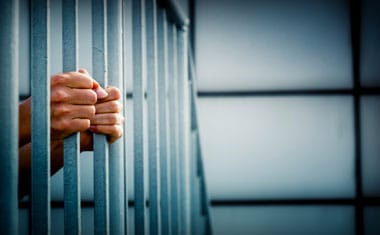Working Closely With You To Defend Against Arson Charges

Arson is the intentional damaging of property by fire or explosion. The damage may be caused to a dwelling, business or structure, provided that people commonly gather there. No person need be home or present to be charged with arson. A person may also be charged with arson if a fire or an explosion occurs while the perpetrator was committing a separate felony.
More serious charges that carry enhanced punishment may be filed against you if a firefighter or other persons were injured while extinguishing the flames. In Florida, arson is a first-degree felony punishable by up to 30 years in state prison.
If you have been charged with arson, immediately contact me, former prosecutor Justin Caldarone of The Caldarone Law Group, P.A., in Naples, for a free consultation to protect your liberty and good name! Contact me online or call 239-244-3242 to speak with an experienced criminal defense attorney.
Arson/First Degree
- The person charged [damaged] [caused to be damaged] a structure of the contents thereof by [fire] [explosion].
- The damage was done willfully or the damage was caused while the person charged was engaged in the commission of a felony.
- The structure was
- A dwelling or
- An institution in which the damage occurred during normal hours of occupancy or an institution where persons normally are present or
- A structure
- The person charged knew or had reasonable grounds to believe the structure was occupied by a human being.
Fla. Stat. § 806.01(1)
Arson/Second Degree
To prove the crime of Arson/Second Degree, the State Attorney must prove the following three elements beyond a reasonable doubt:
- The person charged [caused to be damaged] [damaged] a structure, owned by the person charged or another, by [explosion] [fire].
- The damage was done willfully and unlawfully or the damage was caused while the person charged was engaged in the commission of a felony.
- The structure is a structure.
Fla. Stat. § 806.01(2)
Criminal Mischief
To prove the crime of Criminal Mischief, the State Attorney must prove the following three elements beyond a reasonable doubt:
- The person charged injured or damaged property.
- The property injured or damaged belonging to the alleged victim.
- The injury or damage was done willfully and maliciously.
Among the means by which property can be injured or damaged under the law is the placement of graffiti on it or other acts of vandalism to it.
“Willfully” means intentionally, knowingly, and purposely.
“Maliciously” means wrongfully, intentionally, without legal justification or excuse, and with the knowledge that injury or damage will or may be caused to another person or the property of another person.
The punishment provided by law for the crime of criminal mischief is greater depending upon the value of the property damaged.
- If the damage to the property was $1,000 or greater then the person charged has committed a felony of the third degree.
- If the damage to the property was greater than $200 but less than $1000 then the person charged has committed a misdemeanor of the first degree.
- If the damage to the property was $200 or less then the person charged has committed a misdemeanor of the second degree.
Fla. Stat. § 806.13
Burning To Defraud Insurer
To prove the crime of Burning to Defraud an Insurer, the State Attorney must prove the following four elements beyond a reasonable doubt:
- The person charged [set fire to] [burned] [attempted to set fire to] [attempted to burn] [caused to be burned] [aided, counseled, or procured the burning of] a building, structure, or personal property alleged.
- The property belonged to the alleged victim.
- The property was insured against loss or damage by fire.
- The person charged acted willfully and with a fully formed, conscious intent to injure or defraud the insurer of the property.
“Willfully” means intentionally, knowingly and purposely.
Fla. Stat. § 817.233
